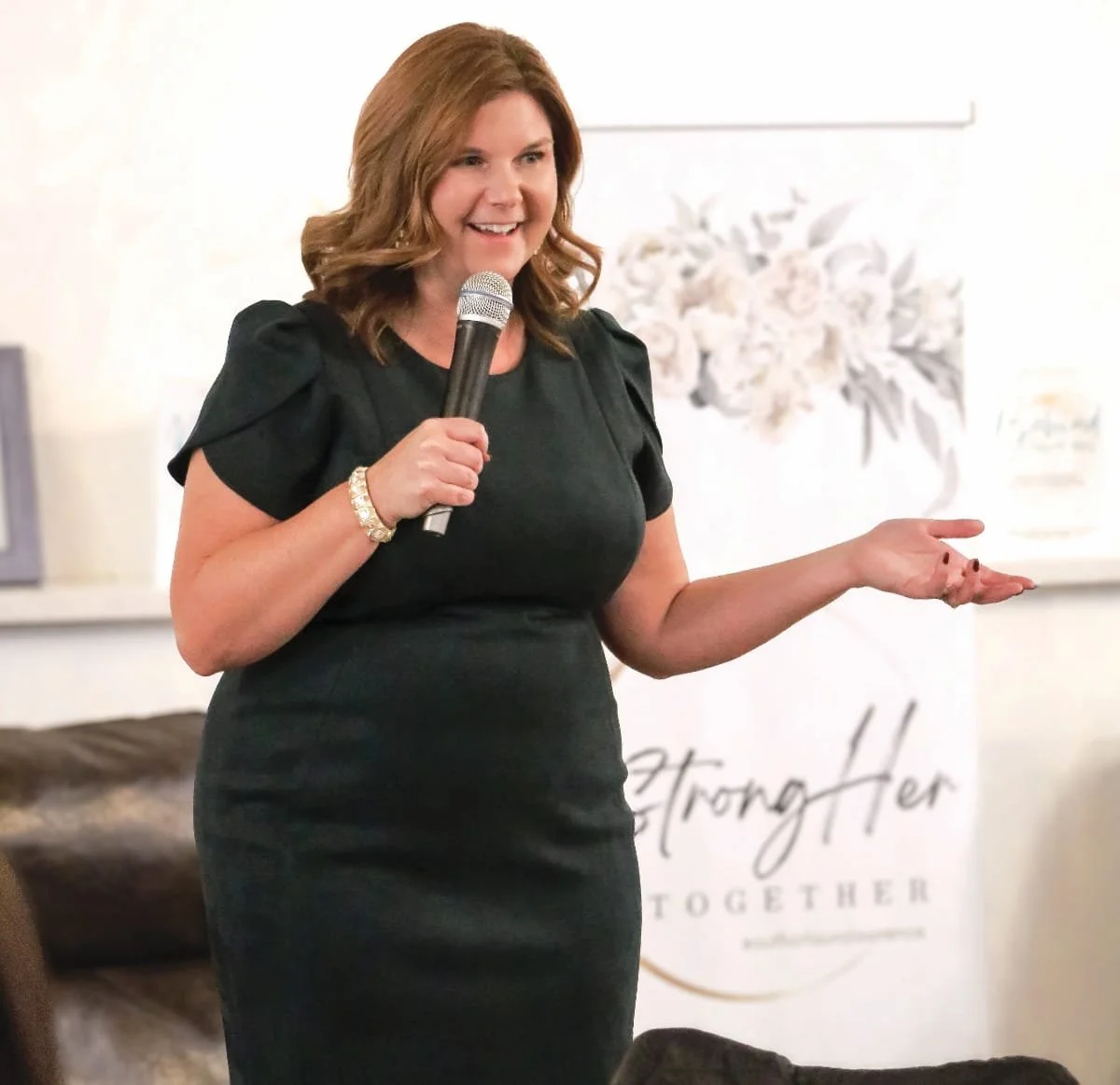Social media is not the best place for our kids to be
KINDERSLEY—Laura Lawrence, a speaker dedicated to youth mental health and wellness, spoke about Online Harms and Cyber Safety to parents and staff at KCS on Thursday evening, April 3rd. Since the beginning of 2025, she's been speaking to parents, staff, and students at approximately twenty schools. She has two decades of experience as a teacher, coach, and mentor of young people.
Laura Lawrence addressed a group of KCS staff and parents on Thursday evening, April 3rd, about online harms and cyber safety for children and teens. Photo courtesy lauralawrence.ca
Not only was Laura knowledgeable, but she delivered her message in a heartfelt manner while interjecting spontaneous humour. She assured her adult audience she wouldn't take their phones away. Much of her talk was based on her personal experience with her teenage children, which ultimately motivated her to research and share the extent of online harms.
"Today I told the kids … we're not using our phones, they're using us," said the founder of Youth Matter Canada. She also had the students imagine they were parents who dropped their kids off at a playground for the entire day while they went to work, and hoped nothing bad would happen. Of course, the students agreed that it would be devastating, yet she said that devices are the same because there are no regulations.
"There's predators online. Do you want to take that chance with your kids?" Laura asked. As an interesting side note, she said the people who build online platforms don't let their own kids use them. And in our modern culture, human trafficking is a slow online journey rather than kidnappings on the street.
"The moment we give our children access to digital devices is the moment their childhood begins to end," she said. The predators are wherever your children are, even in online games such as Roblox that are played by kids as young as 6 years old. "A lot of kids are experiencing online harms on Roblox," she reported.
Predators often pose as online 'friends.' This results in tragic stories making news headlines. One headline read "TikTok pushes harmful content to teens every 39 seconds," and another reported the death of a child who bought a pill on Snapchat. Sextortion is the fastest-growing scam affecting teenagers globally and has been linked to more than 27 suicides in the U.S. alone. "It's a very stigmatized topic not many are talking about," Laura said.
However, of all the online harms, the greatest one lies in the addictive algorithm. "Tech is the new drug," she said. A child psychologist told Laura she would rather a kid be addicted to drugs or alcohol." The psychologist said it's because of the negative impact it has on the developing brains of children.
So what does this mean for our youth? It means they have shorter attention spans, an inability to focus and distracted learning spaces. In addition to becoming addicted, they also are desensitized to explicit content while the lines between virtual reality and reality become blurred. They may experience a lack of joy because online relationships don't meet the need for human interaction. Online engagement leaves children unprepared to resolve face-to-face conflicts, and harmful content leads to suicidal thoughts, eating disorders and troubled sleep.
In addition to describing the problems, Laura also provided support and solutions. Her podcast, HeartTalk, is a valuable resource, and she highly recommended Jonathan Haidt's book The Anxious Generation. She also encouraged parents to have conversations with their MLA about the harms children face.
Her suggested call to action for kids included keeping their live location private to only parents. She advises kids to only "send" something if they're comfortable with their grandmother and a police officer seeing it and always to disclose online harm to a trusted adult.
She encouraged parents to limit their children to three hours a day of social media and turn notifications off. Digital devices should not be allowed in bedrooms and bathrooms, and parents need to make time to spend with their children and nurture phone-free time with friends and family.
"Social media is not all bad, but it's not the best place for our kids to be," she concluded.

